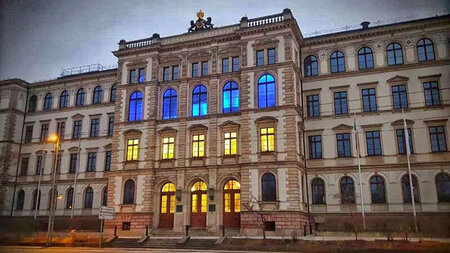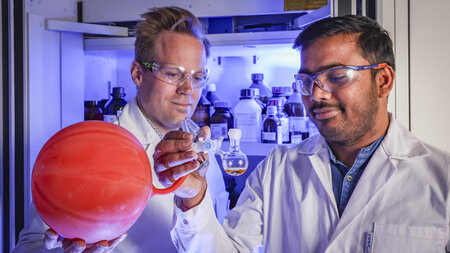Talks
| Speaker | Affiliation | Topic |
|---|---|---|
| Carlo Albert | Swiss Federal Institute of Aquatic Science and Tec, Switzerland | A Simulated Annealing Approach to Bayesian Parameter Inference |
| Bjarne Andresen | University of Copenhagen, Denmark | |
| Shanadeen Begay | Boston University, USA | |
| Maria Cameron | University of Maryland | Algorithms for spectral analysis of networks representing energy landscapes |
| Frédéric Cazals | National Institute for Research in Computer Science and Control, France | |
| Edwin Flikkema | Aberystwyth University, UK | |
| Bernd Hartke | Christian-Albrechts-Universität zu Kiel, Germany | Observable-targeting global cluster structure optimization |
| Karl Heinz Hoffmann | Technische Universität Chemnitz, Germany | |
| Arnulf Möbius | IFW Dresden, Germany | How can one compete with Brent's algorithms for root finding and minimization in 1 D? |
| Peter Salamon | San Diego State University, USA | |
| Christian Schön | MPI for Solid State Research, Germany |
Algorithms for spectral analysis of networks representing energy landscapes
I will introduce a one-pass algorithm for computing zero-temperature asymptotics for eigenvalues and eigenvectors of generator matrices of stochastic networks representing energy landscapes. I will discuss its applications to Lennard-Jones clusters, in particular to the one of 75 atoms. A way to coarse-grain the dynamics will be presented.
The programm will be sheduled just-in-time in Telluride. Please keep in mind that the main purpose of our workshop is to give everyone an opportunity to present his/her current work or important issues of concern in the area of energy landscapes to the other participants, and get detailed feedback. At the same time, we encourage the listeners not to hesitate to ask seemingly basic questions - often these open up new ways of thinking about a problem or exploration method, especially since we have a very diverse expertise in fields ranging from applied mathematics to biology at the workshop. Thus, we will allow lots of time for the crucial extensive and intensive but constructive quizzing of the speaker by the audience. This also allows the participants to exchange ideas in detail, and hopefully conceive of future avenues for collaborative efforts.
We propose that each speaker prepares a presentation of about 30-45 minutes. To allow for the extensive discussions with the audience, the time allocated to each speaker might be extended up to 2 hours.





